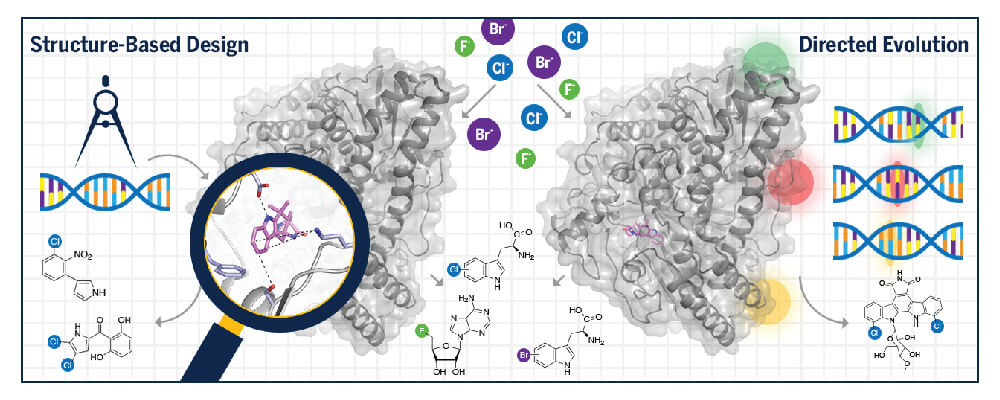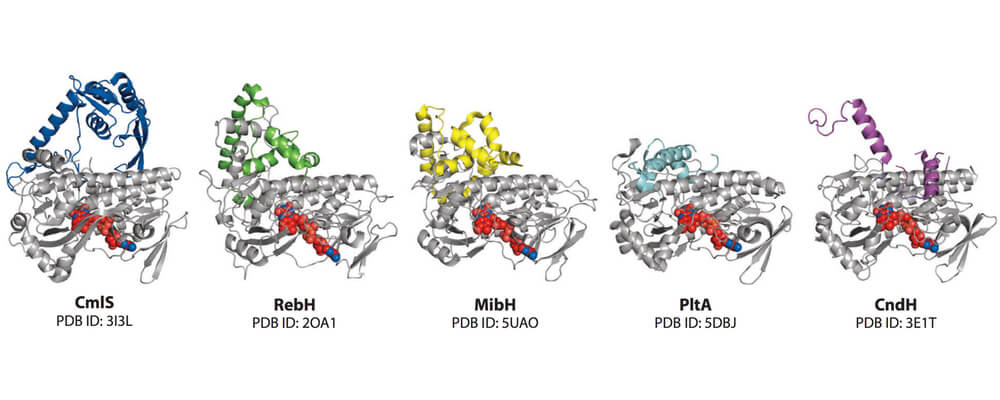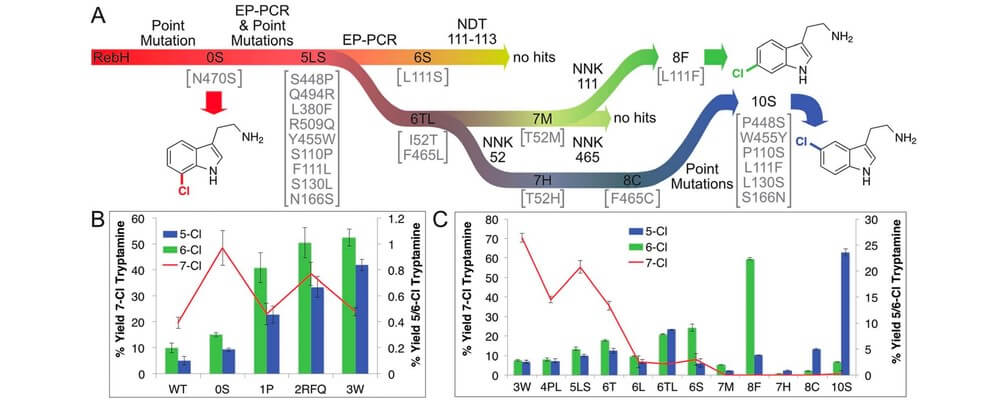Halogenase engineering and its utility in medicinal chemistry
Amy E. Fraley, David H. Sherman
Bioorg. Med. Chem. Lett.,
2018, 28 (11), 1992-1999 DOI: 10.1016/j.bmcl.2018.04.066

06/2018
Halogenation is commonly used in medicinal chemistry to improve the potency of pharmaceutical leads. While synthetic methods for halogenation present selectivity and reactivity challenges, halogenases have evolved over time to perform selective reactions under benign conditions. The optimization of halogenation biocatalysts has utilized enzyme evolution and structure-based engineering alongside biotransformation in a variety of systems to generate stable site-selective variants.
The recent improvements in halogenase-catalyzed reactions has demonstrated the utility of these biocatalysts for industrial purposes, and their ability to achieve a broad substrate scope implies a synthetic tractability with increasing relevance in medicinal chemistry.
Related Content
-

03/2018
Understanding and Improving the Activity of Flavin-Dependent Halogenases via Random and Targeted Mutagenesis
RESEARCH
-

08/2017
Function and Structure of MalA/MalA′, Iterative Halogenases for Late-Stage C–H Functionalization of Indole Alkaloids
RESEARCH
-

01/2017
Understanding Flavin-Dependent Halogenase Reactivity via Substrate Activity Profiling
RESEARCH
-

02/2016
Directed evolution of RebH for catalyst-controlled halogenation of indole C–H bonds
RESEARCH